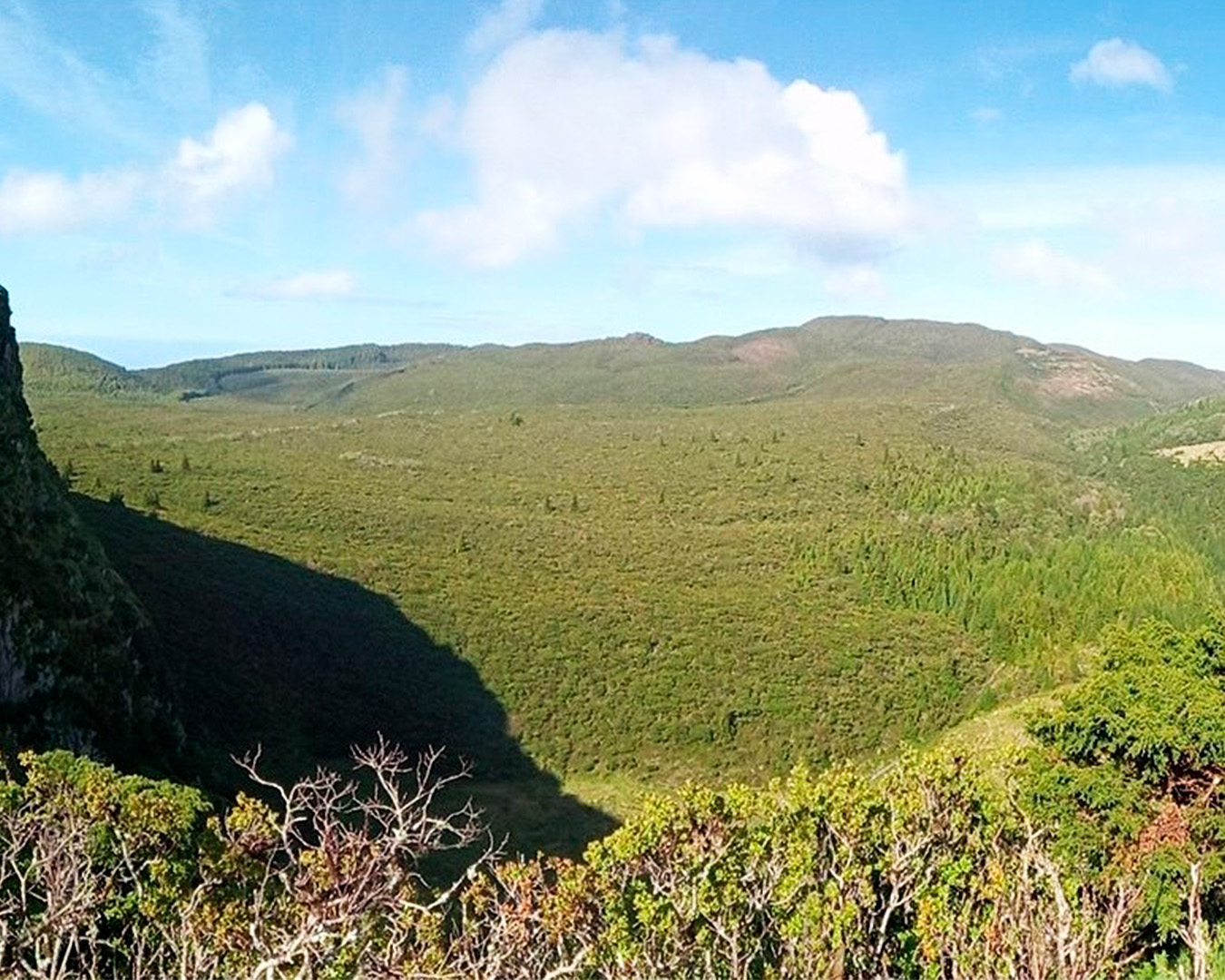
| Acronym: | AzNativePlantVirus |
| Cost Center: | 855 |
| Operation Code: | ACORES-01-0145-FEDER-000117 |
| Title: | Analysis of the diversity and prevalence of viruses in native Azorean plants by metagenomics: implications for the conservation of plant biodiversity and agricultural production |
| Start-End: | 01-04-2019 - 30-06-2023 |
| Entidade Beneficiária Principal: | Fundação Gaspar Frutuoso |
| Gestores da FGF: | Lúcia Cláudio |
| Responsible Researcher: | Duarte Manuel da Silva Mendonça |
| Organic Units: | FCAA - Faculdade de Ciências Agrárias e do Ambiente |
| R&D Units: | CBA - Centro de Biotecnologia dos Açores |
| Entidade | Montante |
|---|---|
| Total Eligible Cost | 187.497,50 € |
| Direção Regional da Ciência e da Tecnologia (15.0 %) | 28.124,62 € |
| PO Açores 2020 - FEDER (85.0 %) | 159.372,87 € |
Main Objectives:
In the AzNativePlantVirus project, the aim is to increase quality scientific production oriented towards intelligent specialization, exploring the diversity of viruses present in native plants of the Azores through an associated metagenomic approach high-throughput sequencing for the following purposes:
- To obtain, for the first time, knowledge about the viral diversity present in plants native to the Azores;
- Explore the plants native to the Azores to increase knowledge about the evolution of viruses;
- Identify the main driving forces responsible for the prevalence and distribution of viruses in the native flora communities of the Azores;
- Distinguish potential indigenous viruses from introduced viruses;
- Identify and characterize new viruses and, in this way, contribute to expanding knowledge about the diversity of plant viruses;
- Identify potential emerging viruses that may impact crops and/or endemic flora;
- Develop and/or improve diagnostic methods, to be used by stakeholders in routine diagnosis, to track the evolution and spread of the virus, as well as for risk assessment.
Project Description:
Viruses are widely dispersed in natural ecosystems, are much more diverse than in agroecosystems and could be important ecological agents. There is, however, a fundamental information gap on the dynamics of plant viruses in natural ecosystems. The complete lack of knowledge about the incidence of viruses in the native flora of the Azores makes it crucial to assess the diversity of viruses present, as a support for conservation policies for endangered species and to prevent the spread of harmful viruses to communities of natural vegetation. As agricultural land occupies a large proportion of the area of the Azores, native plant communities are often adjacent to agroecosystems, which favors the spread of viruses between the two ecosystems. Thus, analyzing the diversity and population dynamics of viruses in these natural ecosystems is also of interest to understand virus epidemics in agricultural crops.
In this work, the viromes of five native species will be studied. To this end, high-throughput sequencing (HTS) will be taken advantage of, as technological advances in this field have opened new doors for discovery, diagnosis, as well as the study of the ecology and evolution of plant viruses.
To achieve the proposed goals, the project work plan comprises five interconnected work packages (WP):
WP1: Selection of sampling sites and sampling - aims to select and characterize the sampling areas of native flora on two islands of the Azores and collect samples of five endemic plants to support WP2 and WP4.
WP2: Viral genome sequencing by HTS - aims to deep sequence v-siRNAs (virus-derived small interfering RNAs) to infer the viral diversity present in the target plants of the study.
WP3: Bioinformatics and data integration – aims to perform bioinformatics analysis of HTS data (WP2) and sequence data obtained in WP4. Furthermore, in a GIS laboratory, the various data collected from WP1 to WP4 will be integrated.
WP4: Molecular detection and characterization of viruses – aims to carry out a deeper molecular characterization of new viruses, develop PCR-based diagnostic methods and confirm the presence of viruses identified by HTS.
WP5: Project management and dissemination - aims at the proper coordination of technical and administrative work, as well as maximizing the impact and dissemination of the project.
Results:
By developing knowledge and advanced technologies, the AZNativePlantVirus project will promote the implementation of more effective containment measures against the emergence of plant diseases in an increasingly disturbed environment as a result of global changes in course. In addition to the impact on natural habitats, which are essential for ecotourism and ecosystem services, it extends to agricultural resources and food security.
At least five articles are expected to be published in international journals, as well as several communications at national and international meetings. In addition to the annual reports that will be provided to the funding program, during the 3rd year a report will be provided to local authorities responsible for protected areas and phytosanitary control, emphasizing the project results and possible impacts on protected areas and on biosecurity. of local plant resources.
Given the amount of data that will be generated, it is expected that at least two master's theses and one doctoral thesis will be carried out. With this, the project will promote the inclusion of young people in scientific research and advanced training.



